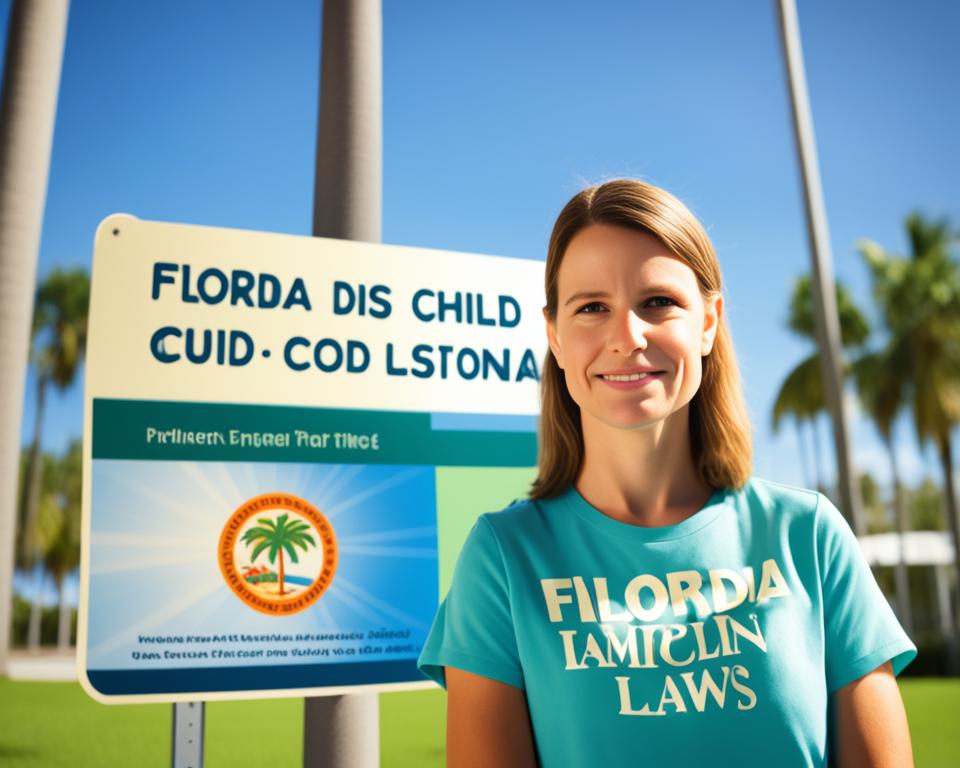Ever wondered where the line is drawn between discipline and child abuse when it comes to spanking in Florida? It’s a gray area that’s often misunderstood. While spanking your child for disciplinary purposes is not illegal in Florida, the distinction between what’s legal and what’s considered abuse can get blurry.
Florida’s common law supports a parent’s right to discipline their child in a “reasonable manner.” This means that non-injurious corporal punishment for discipline is generally not considered abuse. But, what if a spanking leaves a mark or bruise? It brings up questions about what’s reasonable and what’s deemed excessive.
For instance, in cases like G.C. v. R.S., a single spanking on the buttocks with a hand was deemed acceptable. However, in Hall v. State, when corporal punishment drew blood and left visible marks, it led to a felony child abuse conviction. Clearly, the severity and aftermath of the spanking matter.
It’s crucial to know that while parents do have the right to discipline, this does not offer absolute immunity against abuse charges. Disciplinary spankings must be devoid of harmful intent and should not result in significant marks or injuries. Navigating through these nuances can be quite challenging, making it important to stay informed about spanking laws in Florida and how they apply to parental discipline.
Understanding Florida Child Discipline Laws
Understanding Florida child discipline laws can be complex at first. The state recognizes the rights of parents to discipline their children, but what exactly does that entail?

Corporal Punishment Defined
Florida statutes allow parents to use corporal punishment, provided it doesn’t result in harm. According to Florida Statute 39.01(2), corporal punishment is not considered abuse if it doesn’t cause harm to the child. Harm includes physical, mental, or sexual injury that impacts the child’s health. A spanking that leaves no enduring mark typically falls under this category, although context is critical.
Legislative Recognition of Parental Rights
Parental rights in Florida to discipline children are recognized by the law. The right to “moderately chastise or correct a child” was affirmed in the Marshall v. Reams case back in 1893, but with limitations. Florida law has evolved to ensure that such discipline remains reasonable. Notably, in Raford v. State, the Florida Supreme Court highlighted that evidence showing harm from corporal punishment could lead to felony charges. Florida child discipline laws aim to balance parental rights with child protection.
It’s vital to grasp these nuances. Knowing the boundaries of Florida child discipline laws can help parents make informed decisions. The key lies in understanding the corporal punishment definition while respecting both parental rights in Florida and the child’s safety.
Boundaries Between Discipline and Child Abuse in Florida
The line between discipline and child abuse can be thin in Florida. The key difference lies in the level of physical and emotional harm inflicted on the child. According to F.S. 39.01(2), corporal punishment is not considered abuse as long as it doesn’t cause harm. However, understanding these boundaries is crucial to avoid falling on the wrong side of the law.

When Discipline Becomes Abuse
Child abuse laws in Florida are stringent. Under F.S. 827.03, child abuse is a third-degree felony, punishable by up to five years in prison. This doesn’t only include harmful actions but also omissions. For instance, disciplining a child by not allowing them inside during bad weather can be considered abuse. The 2002 case of Raford v. State highlighted that parents have no absolute immunity when disciplining their children. Even a single spank can lead to charges if it’s deemed harmful.
Physical and Emotional Harm Criteria
When analyzing discipline vs. abuse, one must consider the resulting harm. Harm encompasses physical, mental, or emotional injury. Even if no harm is visible, actions leading to scarring or disability qualify as abuse. Let’s remember, as per Florida Statute Section 827.03, child abuse includes inflicting injury or engaging in acts likely to cause it. In cases like Czapla v. State, even if the child is the size of an adult, excessive discipline can still result in charges.
It’s clear that while parents can discipline their children, crossing the line into child abuse results in serious legal consequences. Understanding these laws helps ensure one stays within legal boundaries while disciplining their children.
Legal Protections for Parents in Florida
In Florida, parental discipline is legally protected when it’s done in a reasonable and non-excessive manner. The legal age to spank children in Florida is undefined, creating a responsibility for parents to exercise good judgment. Generally, corporal punishment is acceptable if it doesn’t cause harm or require medical treatment.
Child abuse charges can arise if discipline crosses into harm. Florida Statute section 827.03(b) specifies elements needed for such charges, including the child being under 18 and proof of intentional injury. This means that understanding the boundaries helps parents stay within legal protections.
Florida case law recognizes a parent’s right to reasonable physical punishment. For instance, spanking on the buttocks with a hand or belt is often permitted if it doesn’t leave significant marks. Cases like G.C. v. R.S. reinforce this, showing courts sometimes uphold parental discipline defenses if the punishment is reasonable and doesn’t result in injury requiring medical attention.
However, the defense against child abuse charges in Florida can be complex. Cases such as Hall v. State illustrate that excessive discipline, like causing injury with a belt, can lead to felony charges. Knowing these nuances helps parents stay within legal limits and protect their rights.
For those facing allegations, consulting an experienced attorney is crucial. They can navigate the subtleties of corporal punishment legal protections, ensuring parental actions are understood within legal contexts. Remember, staying informed and exercising caution in disciplining within the law is essential.
Florida Statutes on Corporal Punishment
Florida law provides detailed guidelines defining what constitutes permissible disciplinary actions and what crosses the line into child abuse. These guidelines are critical for parents and guardians to understand to avoid legal repercussions.
Section 39.01: Definitions and Boundaries
Section 39.01 of Florida statutes clearly defines abuse and establishes the boundaries within which corporal punishment is acceptable. According to F.S. 39.01(2), parents or legal guardians can administer corporal punishment as long as it does not result in harming the child. The statute provides a clear framework for what is considered “harm,” ensuring that disciplinary methods do not negatively impact the child’s physical or mental health.
Section 827.03: Child Abuse Regulations
Section 827.03 outlines the regulations and consequences associated with child abuse in Florida. Under these corporal punishment statutes in Florida, child abuse is considered a third-degree felony punishable by up to five years in prison and a $1,000 fine. The statute specifies that acts intentionally inflicting physical or mental injury on a child can lead to child abuse charges.
Various case laws, such as Raford v. State, support these regulations by affirming that parents hold no absolute immunity when disciplining their children. If harm is caused during spanking or any other form of corporal punishment, it could result in felony child abuse charges. For instance, in the 2007 Czapla v. State case, a father was charged for striking his teenage son, emphasizing that neither size nor age exempt a parent from legal consequences.
In complex scenarios where a single spank might be involved, the decision isn’t straightforward. The 2011 G.C. v. R.S. case demonstrates that a single spank, if deemed reasonable, may not always lead to a criminal conviction. Therefore, understanding Section 39.01 and Section 827.03 thoroughly is crucial for all caregivers in Florida.
Is Feeding Alligators in Florida Connected to Child Safety Laws Like Spanking?
The debate around child safety laws like spanking often sparks conversations about appropriate behavior and consequences. In Florida, unrelated but important regulations, such as making feeding alligators illegal, highlight the state’s focus on safety. Feeding alligators conditions them to approach humans, posing risks to communities, much like certain parenting choices influence child behavior.
Is It Legal To Spank Your Child In Florida?
Yes, it is legal to spank your child in Florida, but only if done in a controlled manner without causing harm. Florida Statutes, like F.S. 39.01(2), make it clear that corporal punishment isn’t classified as abuse if it doesn’t lead to harm. This means a simple spank might be permissible, but anything beyond that steps into risky territory.
For guidance, we can look at notable cases. In the 2002 case of Raford v. State, a parent was convicted of felony child abuse when spanking led to measurable harm. A contrasting example is the 2011 case of G.C. v. R.S., where the court ruled in favor of a father who administered a single spank. However, the 2007 case of Czapla v. State shows us the other side, where aggressive acts like punching resulted in serious charges.
Parenting isn’t easy, and understanding the laws governing parental discipline can be challenging. Always remember, excessive corporal punishment could lead to child abuse allegations. It’s essential to recognize the fine line between lawful discipline and potential abuse, especially in Florida. Staying informed about your rights and consulting legal counsel when necessary is crucial. This ensures your intentions to discipline don’t inadvertently become legal issues that affect your family.

